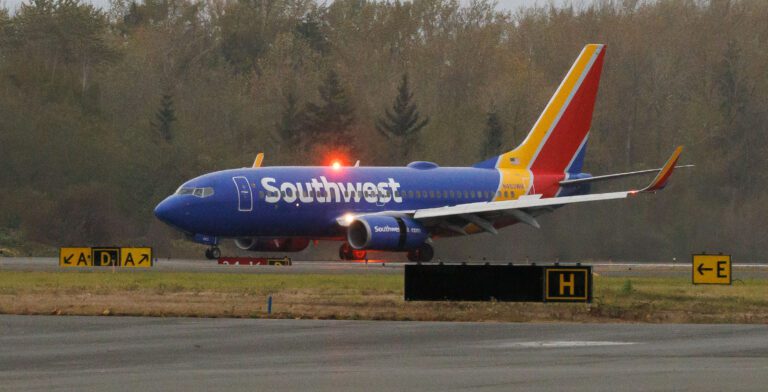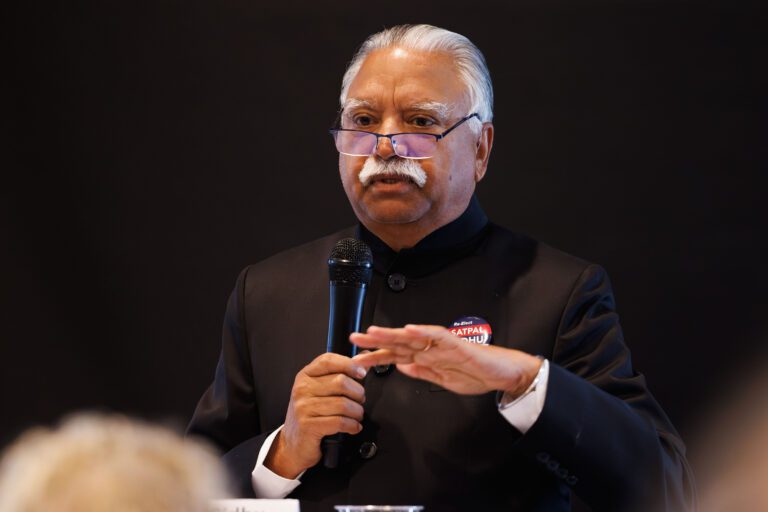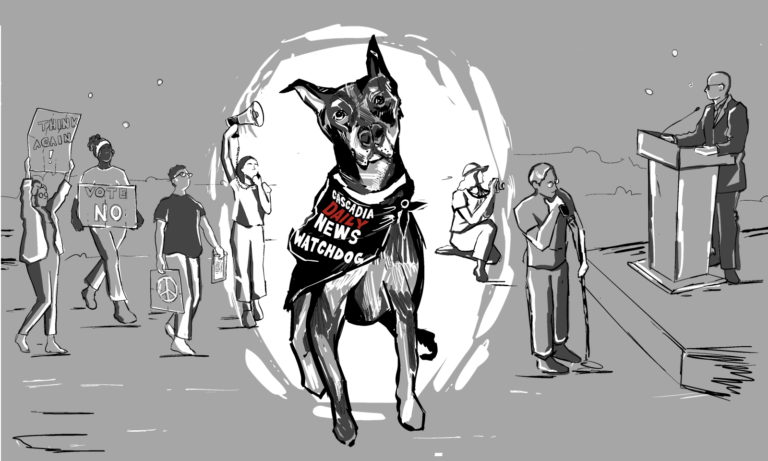Bull kelp populations in south Puget Sound have declined more than 90% in the last 150 years, but a new law may help reverse these trends.
Senate Bill 5619, known as the Kelp Forest and Eelgrass Meadow Conservation Initiative, was sponsored by Sen. Liz Lovelett (D-Anacortes) and signed into law by Gov. Jay Inslee Wednesday, March 30.
The law, which will take effect in June, will conserve and restore around 10,000 acres of bull kelp forests and eelgrass meadows by 2040.
“We wanted to start with something that we felt was achievable and that would help us with the mapping and monitoring we already started, but ultimately to have something at the end of the day that we felt like we could really accomplish.” – Liz Lovelett
“Our ecosystems are facing an existential crisis at every level,” Lovelett said in a press release. “Kelp and eelgrass are a crucial resource in our fight against climate change. They work to effectively sequester carbon in our oceans and are a vital part of our ecosystem.”
Kelp and eelgrass are vital to sustainable environmental health, particularly for local shellfish and salmon populations, which have been struggling as oceans warm. Kelp forests and eelgrass meadows create spaces for marine life to forage and take refuge, slow down the flow of water, sequester carbon and relieve water acidification, according to the state Department of Natural Resources (DNR).
Growing up, Lovelett watched as marine life populations, including kelp and eelgrass, dwindled and disappeared.
“It led me to lead the charge on the kelp and eelgrass bill,” she told Cascadia Daily News. “As a young child, learning about the importance of the eelgrass meadows and what that does for juvenile salmon … it was just a natural fit for my upbringing.”
Ten thousand acres of eelgrass and kelp habitat preservation, though, is just the first step.
“It’s a good starting point,” RE Sources North Sound Baykeeper Eleanor Hines said. “It’s really important that we protect all that we can, and 10,000 acres is a good start, though … I would definitely love to see that number increased.”
Hines said identifying locations for new eelgrass and kelp habitats may be a challenge around Puget Sound, where much of the environment is not conducive to healthy ecosystems. Urbanization and dredging, as well as agriculture and stormwater runoff around the Sound have made it harder for the plants to survive.
“Any step forward is a step in the right direction,” Lovelett said. “We wanted to start with something that we felt was achievable and that would help us with the mapping and monitoring we already started, but ultimately to have something at the end of the day that we felt like we could really accomplish.”
Kelp and eelgrass populations have been struggling in North Puget Sound, too.
“Some folks estimate that there were about 2-to-300 acres of eelgrass beds here in Bellingham Bay, pre-industrial development,” Hines said. “Over the years, a lot of land … has been filled in, so we’ve lost a lot because we filled it in and dredged it. There’s a lot less of that shallow habitat, so there’s less possibility for eelgrass to grow there.”
Last week, Commissioner of Public Lands at DNR Hilary Franz established a “protection zone” for kelp and eelgrass in the state, as a first step in protecting future kelp and eelgrass habitats.
Franz announced more than 2,300 acres of habitat will be protected at the mouth of the Snohomish River.
Eelgrass and kelp are “critical to the survival of our dwindling salmon and orca populations and act as a vital indicator of the health of our waterways because they respond so quickly to changes in water quality,” Franz said.
The 2,300 acres will protect habitats in addition to the 10,000 acres established by Lovelett’s new bill.
“Every bit of grass meadow and kelp forests that we can preserve is super important,” Hines said. “This protection that just came out from Hilary Franz is an important step in the right direction, and we’d love to see a lot more of that happen.”
The bill could prove to be a boon to aquaculture farming in the state. Though there is only one farm currently harvesting kelp in Washington — in Hood Canal — this new legislation could clear the way for more. Currently, kelp is harvested around the country for fertilizer and other agricultural uses, as well as a crop.
“It makes more sense to throw money at things that can then throw money back into the economy,” Hines said. “When people see the value, they’re able to focus more resources on it. … Any kelp beds are good kelp beds.”



